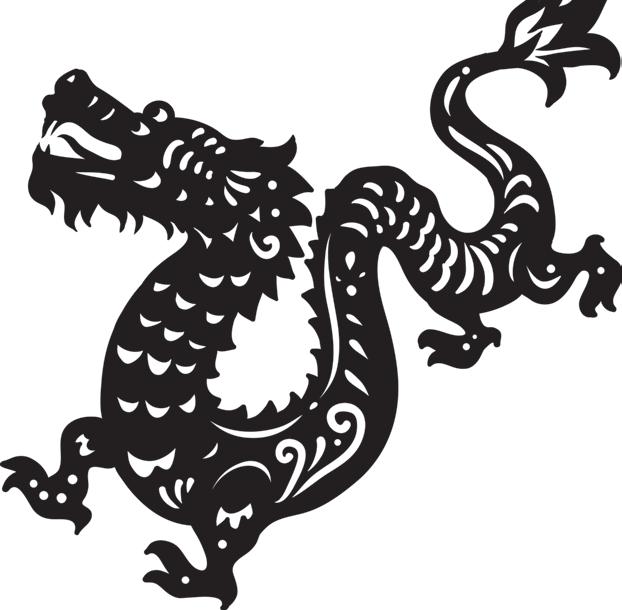
11 minute read
China’s Influence
Dragon Policy
China’s influence on gaming at home and abroad
Advertisement
By Brendan D. Bussmann
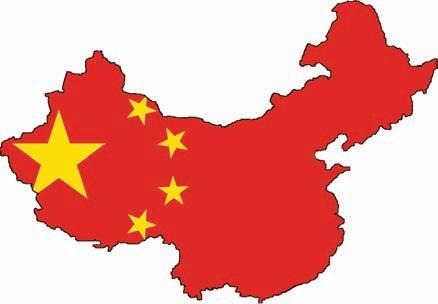
China continues to exert its influence and powers around the globe in just about every aspect of social, economic and geopolitical dynamics. This includes not just what happens within the borders of China, but also the policies associated with its citizenry, either through travel and tourism to other parts of the globe or through its business influences as Chinese corporations establish a global presence in the same manner.
Gambling is seen as less than favorable in the eye of Xi Jinping, president of the People’s Republic of China (PRC) and general secretary of the Chinese Communist Party. Xi maintains that gambling disrupts the social balance and harmony of the Chinese culture. This can be seen over the years in policy decisions to limit access to Macau, or Beijing’s policies toward other countries that may feature online gambling operations, an activity that is banned by the Chinese central government.
Gambling is just one of the many activities that they see could limit the potential growth of the society that Xi dreams of cultivating. This was seen most recently with the announcement out of the PRC to severely restrict video gaming among its youth—never mind the esports enthusiasts and those who have earned large sums of money by playing video games from a young age.
The most recent regulations unveiled by the National Press and Publication Administration express views that would treat video games in a similar manner as casino games by banning minors (under 18) from playing video games between Monday and Thursday with limited activity between Friday and Sunday (and public holidays) between 8 p.m. and 9 p.m. All online video gamers will be required to connect to an “anti-addiction” system.
While these activities have fallen under the umbrella of disharmony within the Chinese society, casino gaming as well as online gaming remain especially entwined with other policy goals of the PRC. Broader geopolitical implications continue to dominate the way that China looks at policy on gambling both within and outside of its own borders.
Setting the Policy Stage
The most notable uses of China’s influence have been through two policies that have held for the better part of the last decade. The first of these includes the Belt and Road Initiative (BRI) or One Belt, One Road. These policies have allowed the PRC to exert its influence in parts of the world to “invest” in infrastructure including but not limited to roads, seaports, airports, telecommunications, and other forms of transport and technology.
As it was originally announced, it was designed in “a bid to enhance regional connectivity and embrace a brighter future.” This enabled China to exert its initial influence and build dependence among some countries with additional infrastructure investment that came with many strings attached.
The second major initiative is One Country, Two Systems. The original concept of this initiative was that while China and its two Special Administrative Regions (SARs) in Macau and Hong Kong would share the same country of origin, they would operate under two different systems. Macau continues to see heavy influence from Beijing, having always been the more closely tied of the two administrative regions.
Hong Kong, on the other hand, has continued to experience escalating tensions since being handed over from the United Kingdom to the PRC in 1997. With the passage of the National Security Law in June 2020, many believe that Hong Kong’s freedoms have been eroded with its judicial system now enveloped by Beijing’s interests.
At the time of the law’s passage, Professor Johannes Chan, a legal scholar at the University of Hong Kong, stated, “It is clear that the law will have a severe impact on freedom of expression, if not personal security, on the people of Hong Kong. Effectively, they are imposing the criminal system of the PRC onto the Hong Kong common law system, leaving them with complete discretion to decide who should fall into which system.”
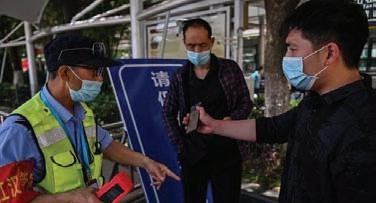
China can control who enters and leaves the country to gamble
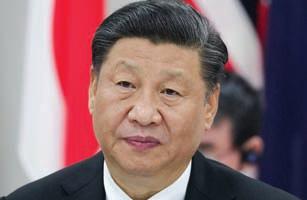
Chinese President Xi Jinping believes gambling is evil and disrupts the social balance of society
A year since the passage of the National Security Law in Hong Kong, it brings into question many of the issues Chan raised just over one year ago. It also brings into question the ability for China to maintain the validity of One Country, Two Systems. Beijing also believes that this policy would apply to the Republic of Taiwan, claiming that it is also a part of the PRC.
The Pandemic Pullback
The policies that have been ushered in since the outbreak of Covid-19 have kept jurisdictions like Macau in a long-term recovery mode. While restrictions at the border of Macau have been lifted, movement from mainland China back into the city continues to be subdued. This was seen as the gaming enclave recorded its lowest monthly total of this year so far with only $554 million in revenue. This was down significantly from just over $1 billion in the previous month, but even further still from the pre-pandemic levels of $3 billion in average monthly gaming revenue.
As Covid-19 cases have increased with some of the latest variants, it has continued to slow the return of the most immediate flow of visitors into Macau. Most significantly, severe restrictions remain in place between Macau and Hong Kong, which has been largely shut off since the beginning of the pandemic.
Hong Kong remains one of the largest gateways into Macau, with Guangdong serving as the other major artery. While this border has been shut because of the pandemic, Hong Kong has also implemented the policies under the National Security Law and has shown the degree to which cutting off one of the main conduits into Macau can slow revenue generation in this market that is highly dependent on Chinese customers.
Macau is not unique to the challenges of border and visa restrictions, but the pandemic pullback has presented an entirely novel set of challenges. In what some have referred to as the responsible gaming measures that have been imposed by Beijing, policies such as visa restrictions have historically been imposed on travel to Macau over the years.
This was done through a change in the policies surrounding visas or by limiting the number of visits that an individual could make to Macau. This also extends into other regions of Asia as Beijing controls the ebb and flow of its citizens in and out of the mainland. None of these previous attempts to control access to gaming have had as significant an effect as the pandemic did, but all of them have had some effect over the 20-year modern history of Macau since the monopoly ended and opened to the six current concessionaires.
Tourism (and Gaming) Economies
Prior to the pandemic, many of the emerging gaming jurisdictions around the world were dependent on Chinese guests for tourism and, in turn, gaming dollars. This was not just focused on the immediate region in Asia. However, as developers would look at jurisdictions around the globe, jurisdictions in the immediate Southeast Asia region had become dependent upon the flow of Chinese tourists to the area and the gaming dollars that have been associated with some of their travels.
Proximate markets in the region including the Philippines, Cambodia, Laos, Vietnam, Myanmar and Malaysia—just to name a few—have built much of their gaming business off of the increased tourism into these markets driven by the Chinese gamer. Some of these revenues could also be attributed to business customers with Chinese companies establishing operations in these regions, either for lower costs of goods or to influence markets based off of BRI. Whether from tourism-driven play or “locals” that have moved into the market to follow their business interests, the influence of the Chinese gamer on the regional gaming market has been significant and pervasive.
With the story continuing to unravel and reveal the nature of high-end play through Crown in Australia, the dominance of, and in some cases the dependence on Chinese play can be significant. The junkets that have operated in key gaming markets throughout the Asia-Pacific region, including Australia, had served as a solid pre-pandemic revenue source for these casinos but also as a sore spot for the Chinese government. With gaming being viewed as harmful to the balance of Chinese society, Australia and other markets will face a number of hurdles to bring these tourists back from China into their respective markets.
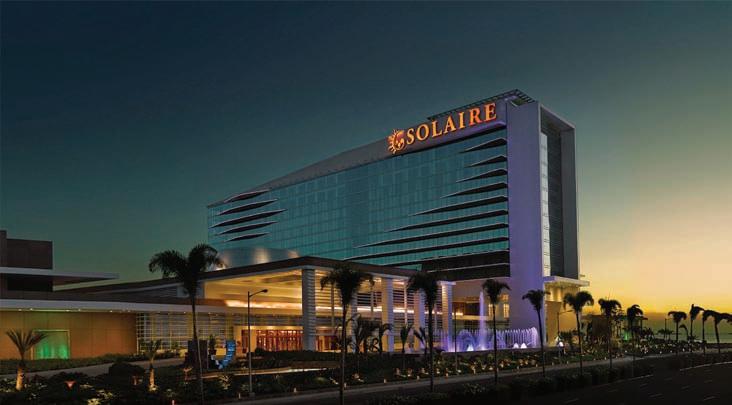
Casinos in the Philippines, such as Solaire in Manila, depend on a steady flow of Chinese gamblers
The Mysterious Blacklist
China has maintained a blacklist of jurisdictions that violate the PRC’s policies on gaming. The blacklist has become somewhat of a point of conjecture, as no one has ever seen a published copy of it. With that said, China does exert a level of influence to make a policy statement with the threat of a blacklist toward other counties that rely on its own citizens as driver of gaming revenue and tax dollars to these jurisdictions.
As reported earlier this year in the South China Morning Post, China believes that over 1 trillion yuan ($155 billion) is wagered overseas by its citizens annually. The hope with the blacklist is to continue to curb efforts to attract Chinese gamblers to other parts of the world.
The policy was first announced in August 2020 when the Ministry of Culture and Tourism (MCT) announced the first tranche of limitations on cities and countries that have “lured Chinese tourists for gambling activities.” Under an amendment to the criminal law, anyone who “organized” trips for mainland Chinese residents for the purpose of overseas gambling “will be deemed to have committed a criminal act.” As the MCT has acknowledged, these are designed to better regulate the travel market and safeguard the lives and financial safety and property of its citizens.
In 2021 alone, China has raised a second and third set of additions to the blacklist as a warning to jurisdictions around the globe for both brick-and-mortar and online gaming operations. Not only is the PRC watching beyond its borders, but it is also cognizant of the gaming activities among its citizenry with its desire to keep a harmonious society.
While the additions to the list from January and July are yet to be made public, it would seem likely that among others, many of the jurisdictions mentioned above are likely on the list. Other markets may include Saipan, where Imperial Palace has been crushed by the lack of Chinese guests, leading many to believe that they are included on the blacklist. As Japan emerges as a future jurisdiction for integrated resorts, the question will be whether it is on the list or it can use gaming as a vehicle for tourism from Chinese visitors.
Prior to the announcement of the blacklist, the PRC would use its influence primarily through some of the earlier policies on the international scene, including BRI, which continues to provide an avenue for China to exert its geopolitical influence that now has expanded into vaccination distribution, as seen most recently in Vietnam, where China one-upped the U.S. by doubling its contribution in order to provide further influence. There is also a deep history in online gaming with jurisdictions such as Cambodia stopping all online operations in response to Beijing, while the Philippines have continued their efforts through Philippine Offshore Gaming Operators (POGOs).
A Post-Pandemic World
While the world continues to speculate what the “new normal” may end up being, one of the biggest questions remaining is how the PRC will reemerge beyond its own borders. For the better part of the last 18 months, China has shut off its borders to anyone entering the country, but it has continued to restrict travel by its own population that was known for generating substantial tourism volume to other parts of the world that in many cases also includes gaming activities.
There are many unknowns that still exist in the long-term reach of the PRC and its influence in gaming markets around the world, as well as within the gaming enclave that is allowed in Macau. China’s actions during the past few months solidify the notion that they will keep a close eye on gaming in general and try to focus it within their own borders to the greatest extent possible. Macau’s continued elevation in its relationship with Guangdong and its contribution to development of the region through Hengqin Island are key examples of the influence on the gaming market domestically.
Another example is the controls over the flow of money and the use of digital currency to restrict transactions involving markets outside of the PRC, especially those that may differ in opinion or the general views on gaming. It will still be several months and years until this all plays out in its entirety, but China seeks to control gaming markets as much as possible as a key factor on a geopolitical scale in an effort to maintain the balance within its own society.
The lesson for operators should be, and continues to be, not to rely on these tourists as a primary source of revenue to sustain operations and diversify their product.





